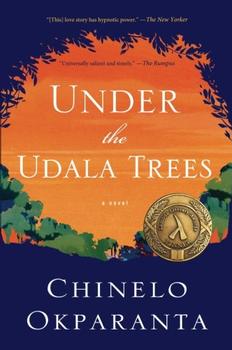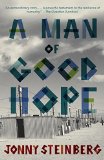Summary | Excerpt | Reading Guide | Discuss | Reviews | Beyond the book | Read-Alikes | Genres & Themes | Author Bio

Ken Bonert's debut, The Lion Seeker, is a coming-of-age novel set primarily in Johannesburg, South Africa. It follows the adventures of Jewish immigrant Isaac Helger as he grows from boy to man, navigating a delicate path between his father Abel's faith and belief in the rewards of hard work and his mother Gitelle's unbridled ambition for her son. Along the way Isaac learns about love, labor, bigotry and the importance of family.
The plot is pretty standard coming-of-age fare, but there are many other aspects of The Lion Seeker that are exceptional, which make the novel a stand-out. First, there's the exotic nature of the setting and the characters. With most of the story occurring before WWII begins, the plot centers on the lives of a family of Jews who have emigrated from Lithuania and are trying to eke out a living in Doornfontein, a Jewish section of Johannesburg. At the risk of demonstrating my personal ignorance, I had never envisaged a community of Jews living in South Africa, and I found the concept itself intriguing and informative. The members of the author's family – themselves Lithuanian Jews living in South Africa – serve as a template for the Helgers.
Bonert's writing is stellar, vividly conveying images of South Africa as well as what the author refers to as "the self-made Jewish ghetto" in Johannesburg.
Cape Town was on a bay raked by salt winds, its streets laced over the roots of a flathead mountain. Colours burned the air: blood flowers, thorny eruptions of vermilion, limeyellow smears on the rocks like veins of fresh paint. The red sun had sandpaper beams. [Gitelle] saw human beings burned the colour of coal or dark-brewed tea or cured leather; she smelled their alien sweat and their tangy cooking, heard the mad bibbering of their manifold tongues…Johannesburg was two hot dry days to the north by train, through country that stunned her like a blow: the cactus hills, the khaki desolation of the plains, the distant hazy sky pierced by that red sun, a madman's glowering eyeball.
Much of the book is written in dialect, a technique that can be difficult to pull off successfully, as authors have a tendency to employ the style inconsistently, tending to drift back into dialog that doesn't conform to the patterns they've established. Not so in this case; the author adroitly pens dialog in Yiddish, Afrikaans, Zulu and English, sometimes switching between two languages mid-sentence:
...Why don't you take a sack of potatoes. Lovely potatoes, take it free for a present for home.
- Stuff your bulbiskes, says Isaac. I don't need your bladey charity, man.
Some people may find this problematic, as sometimes it takes a couple of sentences for the meaning of a word or phrase to become clear, but I thought it was extremely well done and added to the impression that I was truly reading about a foreign land and culture.
The author also skillfully weaves threads of social issues throughout the plot, realistically conveying the political climate in pre-war South Africa, touching on the discrimination against blacks as well as the rising anti-Semitism of the day.
I was particularly impressed by the complexity of Bonert's protagonist, Isaac. He isn't always very likeable; he's uneducated, he's unattractive, he makes bad choices, and he hurts people (both physically and emotionally). Sometimes, though, he shows himself to be caring and vulnerable, with a good heart buried in there somewhere. For example, despite being obviously bigoted, truly feeling that black South Africans are beneath him, he goes to bat for them at one point to ensure they're paid fairly for work they've done. What ultimately emerges is a very intricate picture of a less-than-perfect character struggling to fit into the world, so one can't help but root for his eventual success. I found the author's ability to create such a "real" person remarkable; his ability to establish a balance between his character's good and bad traits demonstrates notable talent.
The only thing I found less than perfect was the way in which the dialog is printed. There are no quotation marks, which can make it difficult to parse at times, particularly with regards to the embedded dialects. Additionally, sometimes the dialog begins with a dash, which generally conveys a change in the language being used, but this usage is inconsistent.
- Yitzchok, vos macht du dorten?
- Not doing anything here. I just wanna ask you something.
- Du kookt azay veiss in ponnim.
- I'm not sick, I'm fine.
- Vos?
I lost my job today, Isaac says, going into Yiddish also.
Ai. Woe. Woe.
I did adjust to this technique, but I can imagine that it could impede some readers' enjoyment of the book.
Overlooking that complaint, I found The Lion Seeker to be one of the better coming-of-age debuts I've read recently and it was definitely worth my time. I heartily recommend it to anyone looking for a novel in this genre that's a little different from most. Its unusual setting, outstanding writing and multifaceted characters make Bonert's debut one that will win him many fans; I sincerely look forward to more.
![]() This review was originally published in The BookBrowse Review in November 2013, and has been updated for the
September 2014 edition.
Click here to go to this issue.
This review was originally published in The BookBrowse Review in November 2013, and has been updated for the
September 2014 edition.
Click here to go to this issue.

If you liked The Lion Seeker, try these:

by Chinelo Okparanta
Published 2016
Inspired by Nigeria's folktales and its war, Under the Udala Trees is a deeply searching, powerful debut about the dangers of living and loving openly.

by Jonny Steinberg
Published 2015
In January 1991, when civil war came to Mogadishu, two-thirds of the city's population fled. Among them was eight-year-old Asad Abdullahi.
Any activity becomes creative when the doer cares about doing it right, or better.
Click Here to find out who said this, as well as discovering other famous literary quotes!
Your guide toexceptional books
BookBrowse seeks out and recommends the best in contemporary fiction and nonfiction—books that not only engage and entertain but also deepen our understanding of ourselves and the world around us.